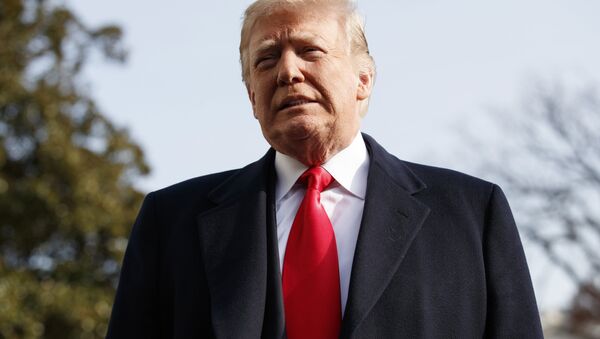Trump suggested that the move was "a gesture of good will" due to the "fact that the People's Republic of China will be celebrating their 70th Anniversary".
....on October 1st, we have agreed, as a gesture of good will, to move the increased Tariffs on 250 Billion Dollars worth of goods (25% to 30%), from October 1st to October 15th.
— Donald J. Trump (@realDonaldTrump) September 11, 2019
Earlier in the day, Trump said that Beijing made a major move by eliminating tariffs on some US products ahead of the resumption on trade talks in two weeks.
The Chinese government's customs tariff commission earlier published two lists including 16 US goods that will be exempted from additional import duties for the period from 17 September 2019 to 16 September 2020.
Last week, the two countries agreed to hold the next session of trade talks in Washington in early October. Previous negotiations took place in Shanghai in late July.
The trade row between the world’s two largest economies erupted in June 2018 when the Trump administration imposed the first round of its additional trade duties on China, prompting Beijing to respond in kind. Since then, the sides have exchanged several rounds of duties and are engaged in talks to settle disagreements.
According to the latest data released by the Chinese General Administration of Customs (GAC), the trade imbalance between two countries continues growing due to the prolonged trade war initiated by Trump, and is currently $195.4 billion.
US Treasury Secretary Steven Mnuchin said made highly-disputed claims that the American economy is not affected by the ongoing trade war with China and does not show any signs of a possible recession.
Chinese Commerce Ministry spokesman Gao Feng has, however, stressed the negative impact of the escalating trade war on the global economy, saying that "the escalating trade war is harmful for China, harmful for the United States and harmful for the interests of all the people in the world, which could even bring disastrous results to the world".
A recent economic outlook report posted by the Organisation for Economic Co-operation and Development (OECD) showed that trade tariffs introduced by the United States and China in 2018 have started slowing GDP growth and increasing inflation worldwide.


